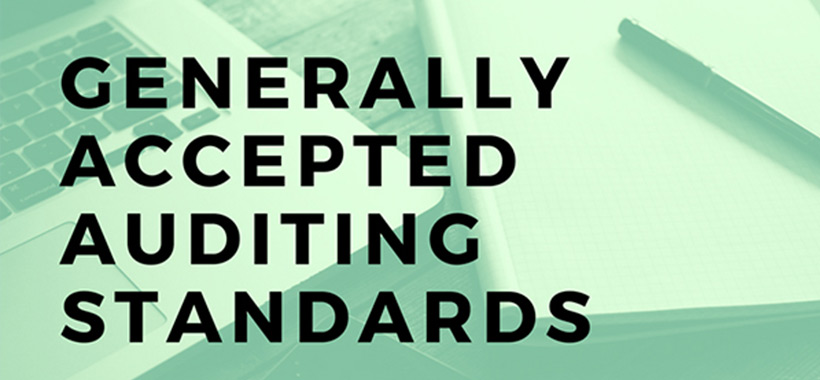
Generally Accepted Auditing Standards (GAAS) are a set of systematic guidelines for auditors to not only conduct audits on companies’ finances but also to ensure the accuracy, consistency and verifiability of actions and reports of the auditors.
These guidelines although vary by territory, in the United States they are promulgated by the Auditing Standards Board which is a division of the American Institute of Certified Public Accountants or AICPA.
GAAS are divided into three categories, which are as follows:
1. General standards
- Auditors must have both adequate technical training and proficiency to perform the auditing tasks.
- Auditors are independent in both fact and appearance for all matters relating to the audit.
- Auditors exercise due professional care while performing auditing tasks and reporting.
2. Standards of fieldwork
- Auditors should plan their work properly and also supervise their assistants, if any.
- Auditors should obtain complete picture of the environment, including internal controls, to assess the risk of material misstatement in the financial statements and to plan the auditing tasks accordingly.
- Auditors should ensure the auditing has been done properly and suffices to evaluate the management’s assertions on the financial statements.
3. Standards of reporting
- Auditors must state in their reports that the financial statements are presented in accordance with the generally accepted accounting principles (GAAP).
- Auditors must identify the circumstances when the principles were not applied in relation to the current period.
- When auditors determine the informative disclosures are not reasonably adequate, they must state this in their reports.
- The auditors have to include their opinion on whether or not the financial statements prepared present the financial position of the company under audit. If and when the auditors can’t express an overall opinion, they should state the reasons in the auditor’s report.
Please keep in mind that GAAS are the minimum standards auditors follow to audit private companies. The Public Company Accounting Oversight Board (PCAOB) has adopted these guidelines for public companies – the ones traded on the open market.
This means each audit engagement auditors work on may require them to perform audit work beyond what’s already specified in the GAAS to properly issue an opinion on the set of financial statements. Using professional judgement and taking due care by auditors is important.
Originally published Aug 08, 2016 12:08:46, updated Dec 28 2020
Topics:







